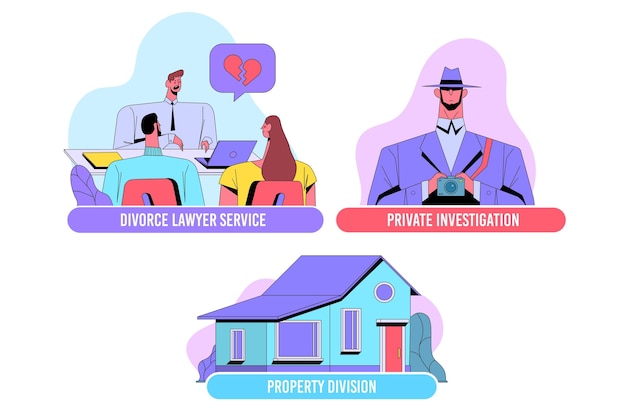
A Home Equity Line of Credit, commonly referred to as a HELOC, is a financial tool that enables homeowners to utilize their accumulated home equity as a guarantee for accessing credit. This resembles a secondary mortgage, considering that the initial mortgage serves as the primary lien on the property. Have you considered choosing between a home equity loan and a HELOC? A home equity loan allows homeowners to borrow a lump sum leveraging their home equity as security. Both options use your home as security but differ in their features, each carrying its own unique advantages and drawbacks. Let’s delve deeper into the features, advantages, and shortcomings of home equity loans and HELOCs to assist you in making an informed decision.
HOME EQUITY LINE OF CREDIT (HELOC)
BENEFITS:
HELOCs operate similar to a credit card, offering revolving credit. This provides the ability to borrow, repay, and borrow again, facilitating flexibility for finances or projects.
HELOCs generally carry less upfront costs, as compared to home equity loans, making them cost-efficient to set up.
The variable interest rate model can benefit if the rates decline, reducing the cost of borrowing.
HELOCs offer the convenience to withdraw funds according to your needs over a set period, up to a specific credit limit.
In certain conditions in line with current tax law, HELOC interests may be tax-deductible.
DRAWBACKS:
While variable interest rates could be advantageous, they might lead to higher borrowing costs if rates soar.
HELOC’s revolving credit structure often tempts borrowers to take on more debt than they can handle.
Being unable to repay a HELOC may result in loss of your home.
HOME EQUITY LOAN
BENEFITS:
Offers fixed interest rates ensuring predictable monthly payments.
You receive a one-off lump sum, beneficial for covering certain expenses or consolidating debt.
Home equity loans have a structured repayment plan, aiding in efficient budgeting and planning for repayments.
LINK: Ways to Rapidly Build Home Equity
DRAWBACKS:
Increase in interest rates can result in higher payments.
Being unable to repay a home equity loan could cost you your home.
PROCEDURE TO SECURE A HELOC AND A HOME EQUITY LOAN
Let’s walk through the process from application to requirements related to credit, closing expenses, and appraisals for obtaining a home equity loan and HELOC.
FIRSTLY, ASSESS YOUR FINANCIAL STATUS
Determine the current market value of your home and compute your existing equity. Equity pertains to the difference between your property’s worth and remaining mortgage balance. Evaluate your financial requirements and goals to confirm the amount you should borrow.
RELATED: Tactics to Enhance Your Home’s Value
SECONDLY, COMPARE LENDERS
Differentiate among various lenders, such as banks, credit unions, or online lending platforms. Choose an option providing competitive interest rates and favorable terms. You can also consider recommendations from your social circle or financial advisors.
THIRDLY, START THE APPLICATION
Understand Your Equity: Home equity signifies the portion of your property split that you technically own.
Credit score: Your credit score, a three-digit figure, mirrors your past credit management. The score can vary between 300 to 850.
Debt-to-Income Ratio (DTI): The fixed monthly debt divided by gross monthly income, expressed as a percentage, portrays your DTI. Your lender will evaluate this ratio.
FOURTHLY, UNDERGO A HOME APPRAISAL
Your lender may necessitate an appraisal to determine your home’s latest market value.
FIFTHLY, REVIEW CREDIT REQUIREMENTS
Scrutinize your credit report to confirm its accuracy and understand your creditworthiness. A higher credit score can lead to better loan terms. Aim for a credit score above 620 for obtaining a home equity loan.
RELATED: Tips for Boosting Your Credit Score Substantially
SIXTHLY, ADDRESS CLOSING COSTS
Closing costs cover expenses like the application fee, title search, lawyer’s fees amongst others and vary depending on your geographical location and the exact loan type. Seek clarity from your lender about these expenses.
RELATED: Understanding Closing Costs and Their Significance
FINALLY, ACCEPT THE LOAN TERMS AND CONCLUDE
Upon approval, the lender will provide you with loan terms, including interest rate, loan amount, and payment schedule. Review these terms, and if you agree, sign the loan agreement. Following this, the lender will finalize the closing process, which may involve legal paperwork and payment of closing costs or fees.
CONCLUSION
A home equity loan offers a lump sum upfront that you repay in fixed installments with steady interest rates, while a HELOC allows you to tap into your equity when needed, up to a certain limit. However, using your house as collateral carries risks as you could lose your home if you fail to meet the repayment conditions.


